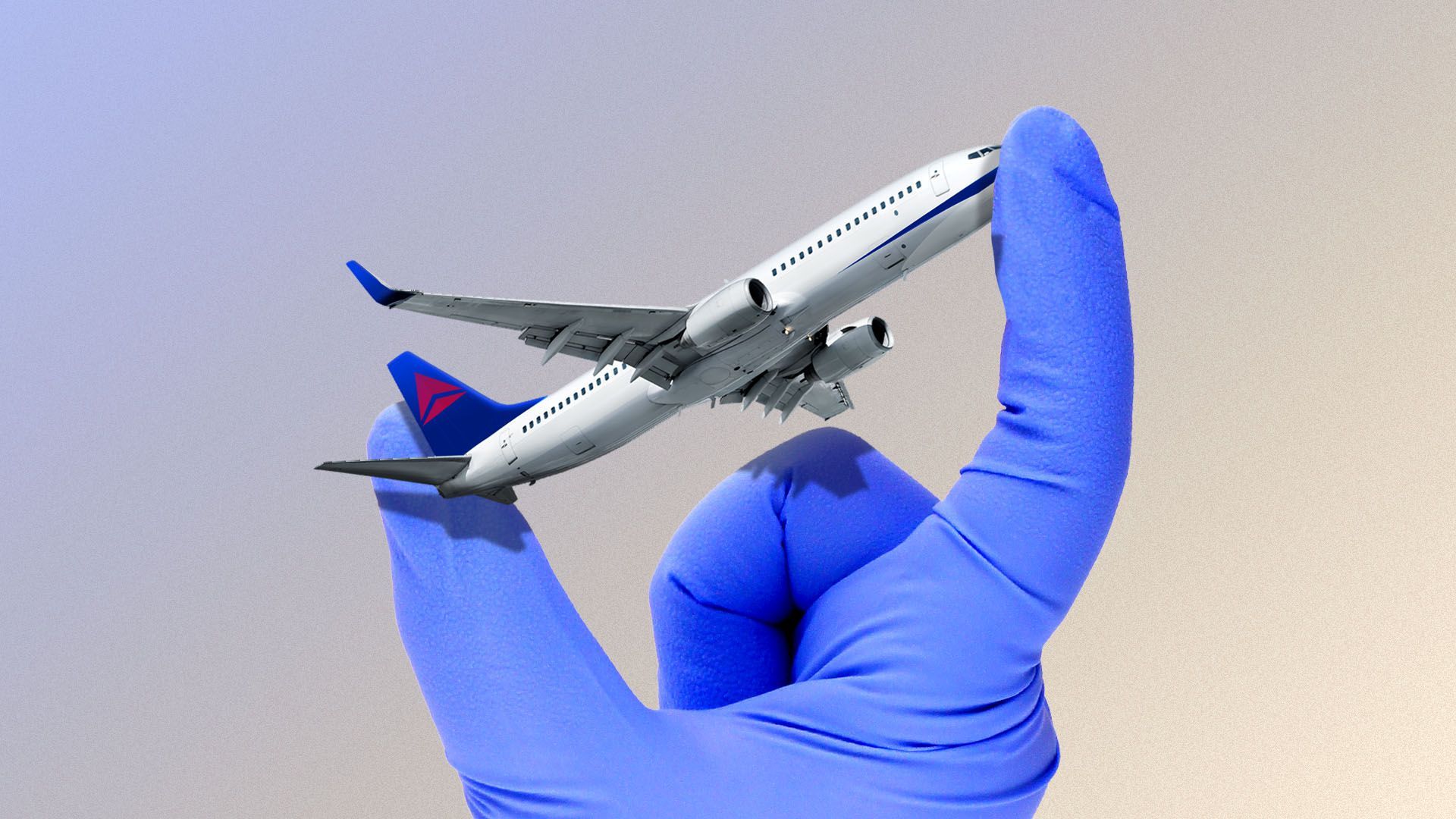Apr 14, 2021 - Economy
CDC: Vacant middle seats on airplanes can reduce COVID-19 spread by up to 57%
Add Axios as your preferred source to
see more of our stories on Google.

Illustration: Sarah Grillo/Axios
Add Axios as your preferred source to
see more of our stories on Google.

Illustration: Sarah Grillo/Axios